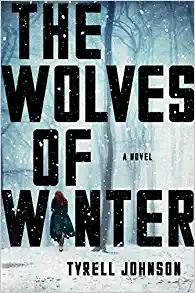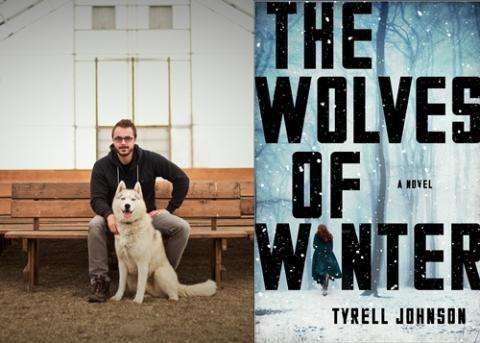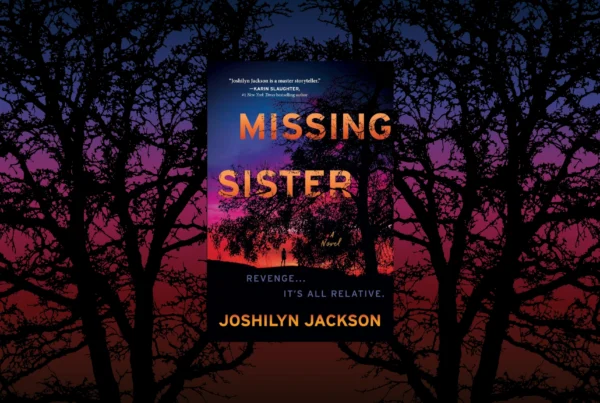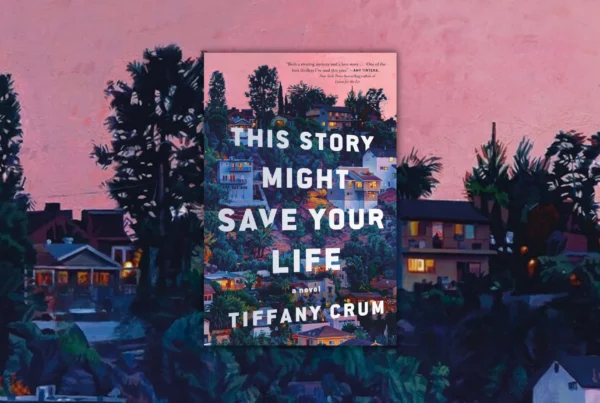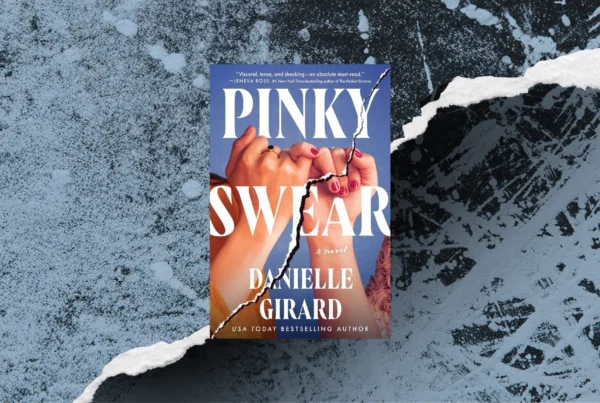The Wolves of Winter by Tyrell Johnson
Tyrell Johnson’s debut novel, The Wolves of Winter (Simon & Schuster) has gotten some stellar reviews from bestselling thriller writers:
“Great, absorbing fiction, with one of the most appealing protagonists I’ve ever encountered. It deserves the widest possible audience.”-BLAKE CROUCH, New York Times Bestselling author of Dark Matter
“This is fiction at its best: a gripping plot, imagery that arrests and illuminates, and characters that will haunt you well beyond the closing of the book. Here is prose that demands to be read. Read it.” – JILL ALEXANDER ESSBAUM, New York Times bestselling author of Hausfrau
“Tyrell Johnson has imagined a future that feels both faraway and too real, too possible. I simply could not put this book down. What a masterful, haunting debut.” – AMY STUART, National Bestselling author of Still Mine
In this article written exclusively for BookTrib, Johnson talks about his experience as a first-time thriller writer and how his writing process was really a journey full of questions for which he and his characters had to find the answers before the final page is turned.
I used to hate giving up on a book halfway through. I’d grit my teeth and keep trudging, one sentence at a time. What has made me alter that habit? Realizing there are so many good books out there. Now, if I’ve lost interest in the characters, if I don’t really care what happens next, and there are no questions driving me onward, I drop the book like a healthy habit that’s just too hard to keep up (I’m looking at you, kale).
When I was an MFA student at the University of California, Riverside, I had a professor tell me that novels are question machines. The author must pull readers along by prompting one question after another, so that interest doesn’t slacken. These questions don’t have to be grand mysteries, but they should be intriguing in terms of either plot or character. In my opinion, the best thrillers are those that combine the two. The most exciting thrillers force you to ask simultaneously: What is going to happen next? and What will the main character do? as opposed to: What is going to happen to the main character next? If the main character is simply pulled along by the plot and you don’t ever wonder what crazy antics they’ll get up to, what mistakes they’ll make, or who they’ll piss off, then the plot can seem too predetermined, the characters too much in service to it. It makes the reader not care.
If you look at Stieg Larsson’s The Girl with the Dragon Tattoo, for example, you’ll see a very specific set of questions. The obvious driving one is: What happened to Harriet Vanger? The plot clips along as our protagonists try to uncover the truth surrounding this mystery. But Larsson also gives us a fascinating character in Lisbeth Salander. She’s strong, independent, troubled, unpredictable. So while leaning forward to see how the central mystery will be resolved, we’re also tantalized by the question: What is Lisbeth going to do next?
Additionally, if you look at Fredrik Backman’s novel, Beartown, which I would consider something of a literary thriller, the questions that drive the narrative are mostly based on the characters, e.g.: What are they going to do in the wake of a horrific event? However, Backman starts his novel like this:
Late one evening toward the end of March, a teenager picked up a double-barreled shotgun, walked into the forest, put the gun to someone else’s forehead, and pulled the trigger.
***
This is the story of how we got there.
With this opening, Backman cleverly prompts several questions that will persist: Who fired the gun? Who was killed? What happened after? And it’s these overarching plot questions combined with character development questions that make this such a propulsive read.
Ideally, questions should be posed in a rhythmic way. In a thriller, they should form pretty quickly, but you don’t want too many upfront. This is something I had to be very conscious of in my own post-apocalyptic thriller, The Wolves of Winter. My brilliant editors helped me move scenes around to reveal certain plot points at very specific times to make sure my narrative had the right beat. It’s crucial to pose questions and reveal answers at the perfect moment, and to end chapters on a bit of a What’s gonna happen next? without being too Bum bum bum,if you know what I mean. Often, once the mystery is solved, there’s still plenty of action: the protagonist vs. the antagonist, the rescue in the burning building, etc. With these windups, the pressing question shifts from Who done it? to Who’s going to survive or win the day?
So what qualifies a book as a thriller? What keeps readers glued to their seats? For me, it’s the prevalence of driving questions that churn like cogs in a machine, steadily building till the very last page, at which point the reader can finally breathe a sigh of relief, close the novel, and pick up the next one.
Read a preview of The Wolves of Winter below:
Buy this Book!
Amazon